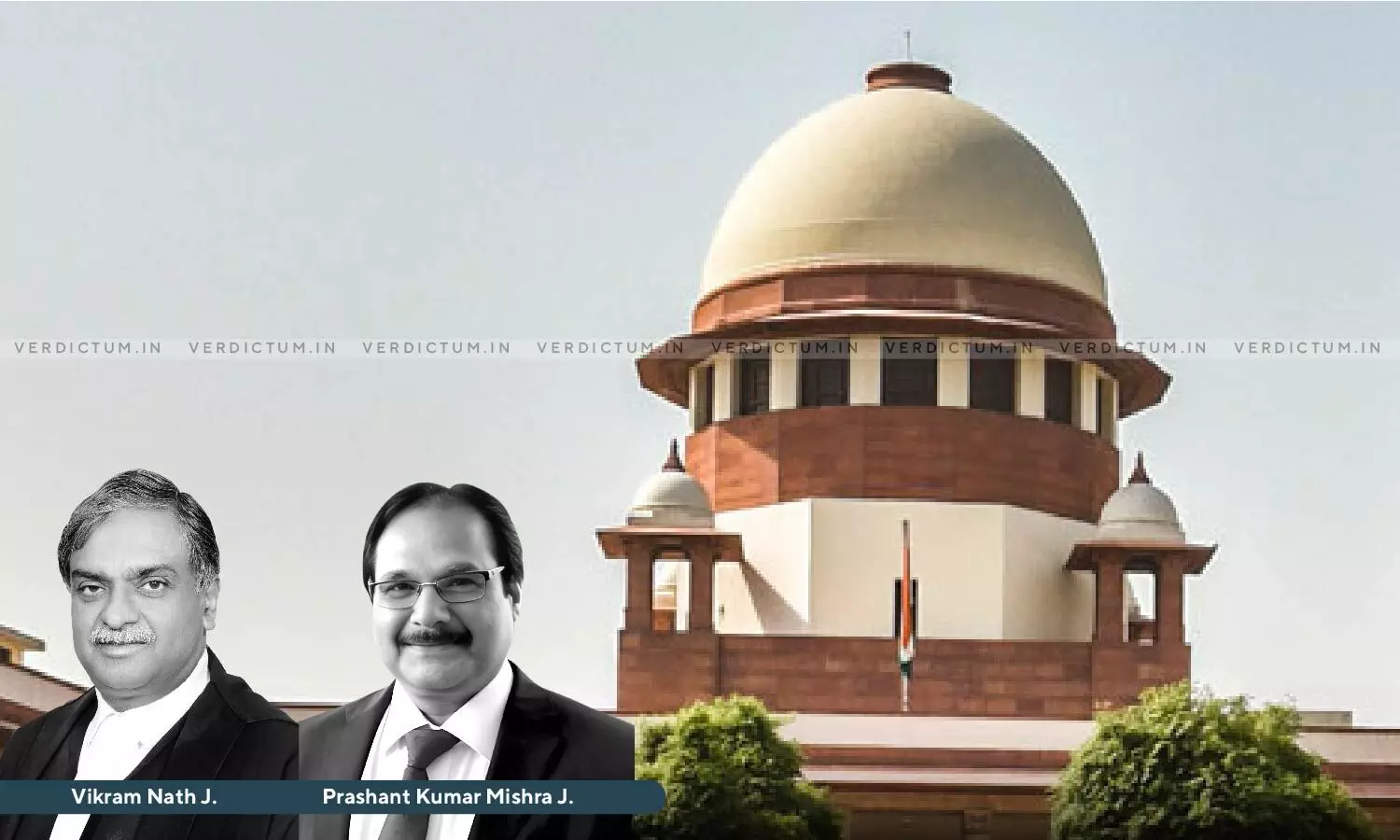
Authorised Signatory Of Company Is Not "Drawer"; Cannot Be Directed To Pay Interim Compensation U/S 143A NI Act
 |
|The Supreme Court has held that an authorised signatory of a company is not a "drawer" under Section 143A of the NI Act, and therefore cannot be directed to pay interim compensation under the said Act.
The Court upheld the decision of the Bombay High Court that held that a signatory of the cheque was not a ‘drawer’ in terms of Section 143A of the Negotiable Instruments Act, 1881 (NI Act) and therefore could not be directed to pay interim compensation under Section 143A of the NI Act.
A Bench of Justice Vikram Nath and Justice Prashant Kumar Mishra observed, “The distinction between legal entities and individuals acting as authorized signatories is crucial. Authorized signatories act on behalf of the company but do not assume the company's legal identity. This principle, fundamental to corporate law, ensures that while authorized signatories can bind the company through their actions, they do not merge their legal status with that of the company. This distinction supports the High Court's interpretation that the drawer under Section 143A refers specifically to the issuer of the cheque, not the authorized signatories.”
Advocate D.P. Singh appeared for the appellant, while AOR Ramchandra Madan represented the respondents.
Shri Gurudatta Sugars Marketing Pvt. Ltd. (Appellant/Company) had advanced a payment for sugar supplies Cane Agro Energy (India) Ltd. (Cane). The cheques issued by the Respondents (Directors of Cain) were dishonoured due to insufficient funds, prompting the appellant to seek interim compensation under Section 143A of the NI Act.
The Judicial Magistrate directed the Directors to pay interim compensation under Section 143A of the NI Act, a decision which the Directors challenged before the High Court. The High Court stated that Section 143A should be interpreted plainly, without resorting to other rules of interpretation. It asserted that the term 'drawer' in Section 143A had a clear and unambiguous meaning, referring to the person who issued the cheque.
The High Court had to determine whether the signatory of the cheque, authorised by the company was the "drawer" and whether such signatory could be directed to pay interim compensation in terms of Section 143A of the NI Act leaving aside the company.
The High Court provided a critical distinction between individuals acting as authorised signatories and the legal entities they represent under the NI Act. The Court heavily relied on the Apex Court’s decision in N. Harihara Krishnan v. J. Thomas (2018) to clarify that an authorised signatory cannot be considered a drawer under Section 138 of the NI Act.
The Supreme Court stated that the High Court's interpretation of Section 7 of the NI Act accurately identified the drawer as the individual who issued the cheque. The Court clarified that the appellants' argument that directors or other individuals should also be liable under Section 143A misinterpreted the “statutory language and intent.”
“The appellants' attempt to extend this principle to Section 143A, to hold directors or other individuals personally liable for interim compensation, is unfounded. The High Court rightly emphasized that liability under Section 141 arises from the conduct or omission of the individual involved, not merely their position within the company,” the Court remarked.
The Court explained that the authorised signatories of a company act on behalf of the company, but do not assume the company's legal identity.
Consequently, the Bench held, “In conclusion, the High Court’s decision to interpret 'drawer' strictly as the issuer of the cheque, excluding authorized signatories, is well-founded…The primary liability for an offence under Section 138 lies with the company, and the company’s management is vicariously liable only under specific conditions provided in Section 141.”
Accordingly, the Supreme Court dismissed the appeals.
Cause Title: Shri Gurudatta Sugars Marketing Pvt. Ltd. v. Prithviraj Sayajirao Deshmukh & Ors. (Neutral Citation: 2024 INSC 551)
Appearance:
Appellant: Advocates D.P. Singh, Manu Mishra, Iman Khera, and Shreya Dutt; AOR Sonam Gupta
Respondents: AOR Ramchandra Madan and Aaditya Aniruddha Pande; Advocates Siddharth Dharmadhikari, Bharat Bagla, Sourav Singh, Aditya Krishna, Preet S. Phanse, Adarsh Dubey and Kirti Kumar